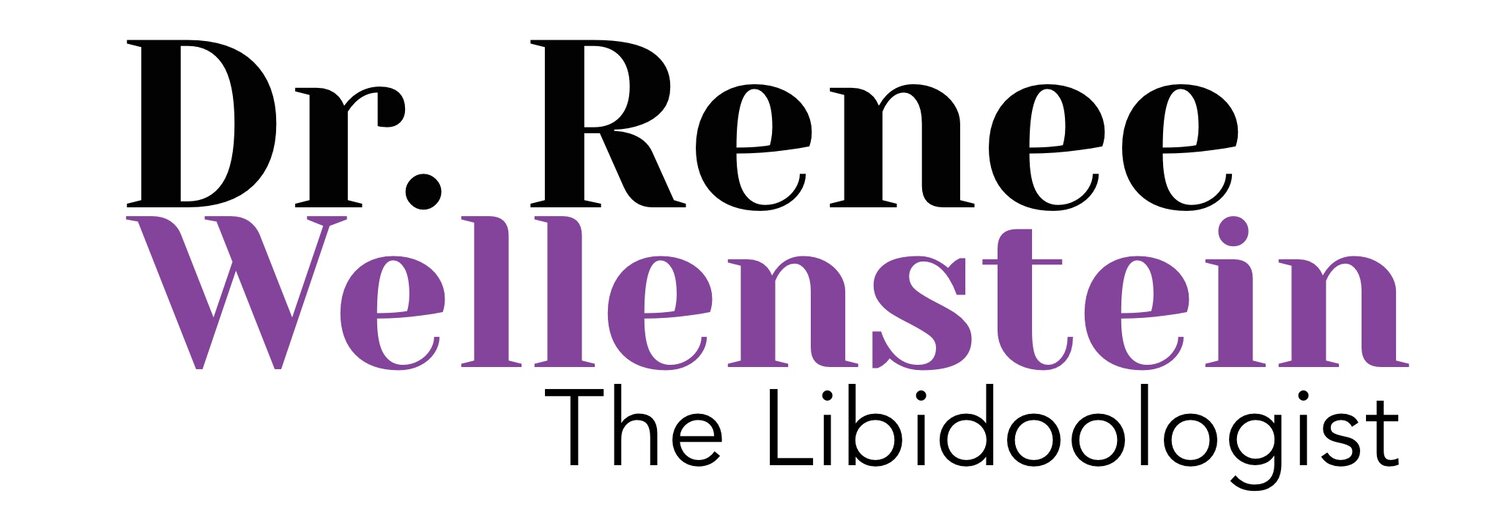Brain Health and the Liver: Unveiling the Critical Link
Photo by Milad Fakurian
The intricate connection between the liver and brain health is a fascinating aspect of our body's ecosystem. In this blog post, we delve deeper into how the liver's health directly influences cognitive functions, the importance of detoxification, and practical lifestyle tips for maintaining both liver and brain health, including a nutritious recipe that benefits both.
The Liver-Brain Connection: A Vital Partnership
The liver acts as a filtration system, removing toxins and regulating nutrients that affect brain function. It's not just about detoxification; the liver also plays a crucial role in managing blood glucose levels. Stable glucose is vital for brain function, as the brain, unlike other organs, relies heavily on glucose for energy.
Synthesis of Essential Brain Nutrients
The liver is instrumental in synthesizing various nutrients that are crucial for brain health:
Cholesterol: While often viewed negatively, cholesterol is essential for brain health. The liver produces cholesterol, which is vital for the formation of myelin sheaths that protect nerve fibers and aid in the transmission of nerve impulses.
Bile Production: The liver produces bile, which helps in the absorption of fat-soluble vitamins like Vitamins A, D, E, and K. These vitamins are important for brain health, aiding in cognitive function, nerve signaling, and protecting the brain from oxidative stress.
Regulation of Amino Acids and Neurotransmitters
The liver plays a key role in the metabolism of amino acids, which are the building blocks for neurotransmitters, the brain's chemical messengers:
Serotonin Synthesis: The liver's role in metabolizing tryptophan, an amino acid, is crucial for the synthesis of serotonin, a neurotransmitter that regulates mood, sleep, and cognition.
Detoxification of Ammonia: The liver converts ammonia, a neurotoxic byproduct of protein metabolism, into urea, which is then excreted. Elevated ammonia levels due to liver dysfunction can lead to hepatic encephalopathy, affecting brain function.
Impact on Blood Flow and Brain Oxygenation
The liver's health directly impacts blood flow, which in turn affects brain oxygenation and function:
Blood Filtration: The liver filters the blood, removing harmful substances and ensuring that clean, nutrient-rich blood is circulated to the brain.
Regulation of Blood Volume: The liver plays a role in regulating blood volume. Proper blood volume is essential for adequate blood flow to the brain, ensuring that it receives sufficient oxygen and nutrients
Subtle Cognitive Effects of Liver Health
1. Mild Cognitive Impairment Due to Liver Dysfunction:
Even in the absence of severe liver diseases like hepatic encephalopathy, minor liver dysfunctions can still impact brain health. For instance, a liver that is mildly overburdened with toxins or fat accumulation might lead to decreased efficiency in toxin removal and nutrient metabolism. This can result in subtle cognitive effects such as:
Reduced Concentration: Difficulty in focusing or prolonged concentration on tasks.
Memory Fluctuations: Experiencing minor memory lapses or forgetfulness.
Slower Cognitive Processing: A feeling of 'brain fog' or slower processing of information.
2. The Role of Liver in Blood Sugar Regulation:
The liver helps regulate blood sugar levels, which directly affect brain function. Fluctuations in blood sugar can lead to:
Mood Swings: Instability in blood sugar levels can cause mood changes, irritability, or anxiety.
Energy Lows: Periods of low blood sugar can lead to feelings of fatigue or lethargy, impacting cognitive functions.
3. Impact of Non-Alcoholic Fatty Liver Disease (NAFLD):
NAFLD, a more common liver condition, especially in Western countries, can have subtle effects on brain health. While not as severe as hepatic encephalopathy, NAFLD can lead to:
Mild Inflammation: Chronic low-level inflammation associated with NAFLD can potentially impact brain health, contributing to a state of mild cognitive dysfunction.
Insulin Resistance: NAFLD is often linked with insulin resistance, which can affect brain health due to its role in cognitive decline and increased risk for neurodegenerative diseases.
4. Liver Health and Sleep Quality:
Poor liver health can affect sleep patterns, leading to:
Disrupted Sleep: A compromised liver can lead to sleep disturbances, which in turn can affect cognitive functions due to lack of restorative sleep.
Daytime Fatigue: Poor sleep quality can result in daytime fatigue, affecting alertness and cognitive abilities.
Detoxification: The Liver's Role in Protecting the Brain
Detoxification is a complex process involving two phases: Phase I (transformation) and Phase II (excretion). In Phase I, the liver transforms toxins into less harmful substances. In Phase II, these substances are made water-soluble for excretion. This process is crucial for brain health, as the accumulation of toxins can lead to neurodegenerative diseases.
Enhanced Understanding of Liver Detoxification and Brain Protection
1. Detailed Breakdown of Phase I Detoxification:
Enzymatic Breakdown: In Phase I, enzymes, primarily from the cytochrome P450 family, are responsible for breaking down toxins. This includes converting fat-soluble toxins into more water-soluble forms.
Activation of Toxins: Interestingly, this phase can sometimes make toxins temporarily more reactive and potentially harmful, which underscores the importance of a well-functioning Phase II to quickly neutralize these intermediates.
2. In-Depth Look at Phase II Detoxification:
Conjugation Processes: Phase II, also known as the conjugation phase, involves attaching small chemical groups to the transformed toxins, making them less harmful and easier to excrete.
Types of Conjugation: This phase includes several pathways like glucuronidation, sulfation, and methylation. Each pathway is suited to neutralize different types of toxins, highlighting the liver's adaptability in handling a wide range of substances.
3. Synergy Between Phases and Nutritional Support:
Interdependence of Phases: The balance between Phase I and Phase II is crucial. If Phase I is too active compared to Phase II, it can lead to an accumulation of reactive intermediates, increasing oxidative stress and potentially harming brain cells.
Nutritional Support: Certain nutrients, such as B-vitamins, glutathione, and flavonoids, are vital for supporting these detoxification phases. Foods rich in these nutrients can enhance the liver's ability to detoxify effectively.
4. The Liver's Role in Reducing Oxidative Stress:
Antioxidant Production: The liver produces antioxidants like glutathione, which play a critical role in protecting the brain from oxidative stress, a key factor in neurodegenerative diseases.
Neutralizing Free Radicals: By neutralizing harmful free radicals, these antioxidants prevent damage to brain cells, supporting cognitive health.
5. Impact on Neurodegenerative Diseases:
Prevention of Toxin Accumulation: Efficient detoxification by the liver can help prevent the accumulation of neurotoxic substances, which are implicated in the development of neurodegenerative diseases like Alzheimer's and Parkinson's.
Blood-Brain Barrier Protection: A healthy liver ensures that fewer harmful substances reach the brain, helping to maintain the integrity of the blood-brain barrier.
Lifestyle Tips for Liver and Brain Health
1. Nutrition:
Diverse Antioxidant Sources: Eat more than just blueberries and walnuts. Include a variety of colorful fruits and vegetables like leafy greens, beets, and berries to ensure a wide range of antioxidants.
Omega-3 Rich Foods: It is important to eat a variety of foods rich in omega-3 fatty acids such as salmon, flaxseeds, chia seeds, and hemp seeds.
Fiber-Rich Foods: Incorporate whole grains, legumes, and seeds for their fiber content, which aids in digestion and toxin elimination, directly supporting liver health.
2. Exercise:
Types of Exercise: Incorporate a mix of cardiovascular exercises, strength training, and flexibility exercises. Yoga and Pilates, for example, are excellent for reducing stress and improving circulation.
Consistency and Moderation: It is important to practice regular, moderate exercise rather than intermittent intense workouts, as consistent activity is more beneficial for long-term liver and brain health.
3. Mindful Consumption:
Alcohol Moderation: Consume alcohol in moderation (if at all), as excessive intake is one of the leading causes of liver damage.
Mindful Medication: Take only medications that are absolutely necessary since regular consumption of OTC meds like acetaminophen can impact the health of the liver.
4. Hydration and Sleep:
Hydration Tips: Startthe day with a glass of water and carry a reusable water bottle to ensure adequate hydration throughout the day.
Sleep Hygiene: Improve your sleep quality by establishing a regular sleep schedule, creating a restful environment, and avoiding screen time before bed.
5. Regular Check-ups:
Liver Function Tests: Certain blood tests can monitor liver health, such as liver enzymes, bilirubin, and other relevant markers. And be sure to consult a blood work specialist ( like me) to interpret your labs from a functional medicine perspective so we can PREVENT disease before it even occurs. .
6. Stress Management:
Techniques for Stress Reduction: Techniques like mindfulness meditation, deep breathing exercises, and spending time in nature, are all helpful in reducing stress.
Connection Between Stress and Liver Health: Chronic stress can adversely affect liver function by triggering inflammation and imbalances in bodily processes that the liver is responsible for, such as metabolism and detoxification. This impaired liver function can lead to an accumulation of toxins and hormonal imbalances, which can negatively impact brain health, manifesting as cognitive issues and mood disturbances.
Featured Brain-Healthy Recipe:
This recipe combines the brain-boosting benefits of omega-3 fatty acids from salmon with the antioxidant properties of walnuts, making it an excellent meal for supporting both liver and brain health.
Conclusion:
Understanding the liver-brain connection opens up new avenues for maintaining cognitive health, especially as we age. By adopting a lifestyle that supports liver health, you're simultaneously nurturing your brain, paving the way for better health and improved quality of life.
Transform Your Health Today: Schedule Your Strategy Call!
Are you ready to take control of your liver and brain health? The journey to wellness is just a conversation away. Schedule your strategy call with me today, and let's unlock the path to a healthier, more vibrant you.
During our call, we'll dive deep into your unique health needs and challenges. Together, we'll craft a personalized plan that aligns with your lifestyle, goals, and the specific needs of your body. You'll receive expert guidance, actionable strategies, and the support you need to make lasting changes.
Why wait for a healthier future? The power to transform your health is in your hands, and I'm here to guide you every step of the way. Click the link below to book your strategy call now and embark on a journey to optimal health and wellness.
Your health is your most valuable asset. Let's nurture it together!



